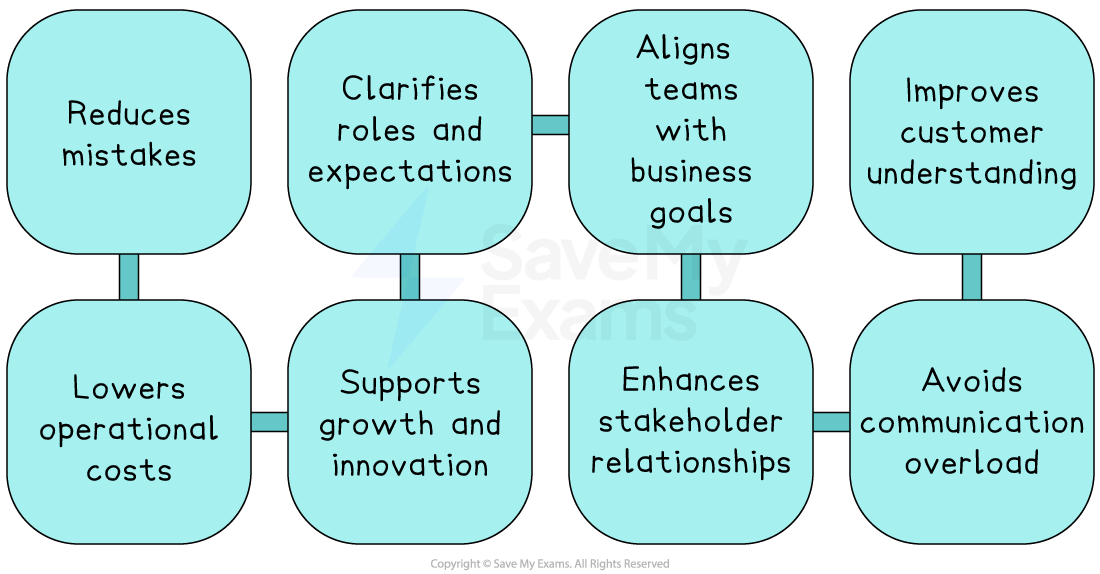Purposes of Communication (Cambridge (CIE) A Level Business): Revision Note
Exam code: 9609
The purpose of communication
Communication is the successful transfer of messages between sender(s) and receiver(s)
Internal communication
Internal communication is the exchange of messages between two or more members of the same organisation
It helps to ensure the business runs smoothly, as it allows departments, teams and individuals to share information, make decisions and work towards common goals
Situations where internal communication is needed
Coordination
Ensures departments, like marketing, operations and finance, are aligned and working together effectively
E.g. a team meeting to plan a product launch
Motivation and morale
Keeps employees informed about company plans and progress, which can increase engagement and job satisfaction
E.g. a training session introducing a new computer system
Decision-making
Allows managers and employees to exchange ideas, give feedback, and make well-informed choices
Delegation and instructions
Managers communicate tasks clearly to staff so that work is done efficiently and correctly
E.g. a manager emailing staff about new safety procedures.
Performance management
Used for appraisal, giving praise or constructive feedback, and setting targets
Problem-solving
Helps resolve issues quickly through open dialogue and collaboration
External communication
External communication is the exchange of message(s) between an organisation and external stakeholders such as customers, suppliers or investors
It helps a business build and maintain good relationships with people or groups outside the organisation who have an interest in the business.
Situations where external communication is needed
Purpose | Explanation |
|---|---|
Customer relations |
|
Supplier coordination |
|
Investor confidence |
|
Legal and regulatory compliance |
|
Public image and PR |
|
The importance of communication
Effective communication ensures that clear messages are sent, received, understood and acted upon in the way intended
Effective communication should be
Clear and unambiguous
Appropriate to the context and to the sender
Sent to the correct receiver in an accessible format
Timely and contain only the required amount of detail
The benefits of effective communication

Reduces mistakes
Clear instructions and feedback between managers and staff help reduce errors, which saves time and improves efficiency
Clarifies roles and expectations
When communication is effective, everyone knows their responsibilities
This increases accountability and helps teams work more productively
Aligns the team with business goals
Communicating the company’s values and objectives ensures all employees are working towards the same targets
Improves customer understanding
By providing accurate and clear information about products or services, businesses can improve customer satisfaction and reduce complaints
Lowers operational costs
Good communication avoids misunderstandings and delays
This helps a business operate more efficiently and reduce unnecessary expenses
Supports growth and innovation
When communication flows well, businesses can spot and act on new opportunities quickly, such as launching new products or entering new markets
Improves stakeholder relationships
Managers must manage communication channels carefully to ensure the right people stay informed
This builds trust with key groups such as investors, employees and suppliers
Avoids communication overload
A 2021 survey of US workers found over one-third were overwhelmed by excessive emails, which made them consider leaving
Managing the volume of communication is vital to protect employee wellbeing and retention

Unlock more, it's free!
Was this revision note helpful?
